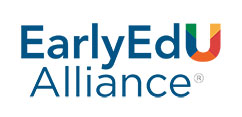Montana Apprentice Programs
Montana Apprentice Programs

Most students studying EarlyEdU Alliance® courses access them through colleges and universities. Often, they currently work—sometimes full-time—in early childhood environments such as childcare centers and preschools. These individuals seek two- and four-year degrees, new skills, and more challenging and lucrative careers.
Such goals align with those of the Montana State Department of Labor and Industry, which is exploring ways to support and expand the state’s early childhood work force. The department has launched a pilot program that uses EarlyEdU courses as a core feature of what it calls “the oldest form of skills training”—an apprenticeship program.
Working closely with employers in the state, Montana’s Registered Apprentice Program provides flexible training opportunities for residents eager to learn new trades on the job, with pay.
In October 2023, the state extended this opportunity to early childhood workers seeking child development credentials. Through the state’s Pilot Pre-Apprenticeship Child Development Associate (CDA) program, licensed childcare workers receive a $3,000 stipend while they engage in 480 hours of on-the-job experience during the nine-month pilot. They also undergo 120 hours of online training, and this is where EarlyEdU courses come in.
Like other states, Montana needs more ECE workers and educators. According to a 2024 state labor department report on the Childcare Workforce in Montana, the statewide supply of childcare workers meets only 44% of demand—20,640 licensed workers to serve 46,390 children ages 0-6 living in households with “working parents.” The labor department has designated more than half (60%) of Montana counties as “childcare deserts” with capacity at less than half of demand from resident families. Mean annual income for full-time childcare workers in Montana is $26,480. The combination of high demand, low supply, and low wages puts intense pressure on the state’s ECE system.
Montana’s Pre-Apprenticeship pilot is a focused effort at closing the gap between childcare need and supply in Montana. With resources from the federal American Rescue Plan Act (ARPA), which provides funds to address the unique needs of local communities, all key roles in the program are “incentivized.” That is, the 13 current apprentices, the mentors who support them, and their employers who sponsor them are all paid for their participation in the pilot.
These incentives are essential to the program’s success. The stipends encourage apprentices, mentors, and sponsors to stay with the program, “hanging in there, in case they run into trouble,” says Rhiannon Shook, Childcare Development Specialist with the department’s Industry Workforce Services Division.
One key feature of the program that does not require a dedicated funding stream is online training. Working with the Montana Early Childhood Services Bureau and the non-profit Montana Early Childhood Project, Shook and her labor department colleagues determined that course content from the EarlyEdU Alliance is “a great fit for us to meet the needs of specifically the CDA certification.” The pilot offers five EarlyEdU courses cost-free, which are uploaded into a state learning management system specific to the state’s childcare workforce (childcaretraining.org).
“The content is current and applicable to everyday work practices,” Shook says. She notes several characteristics of the EarlyEdU courses that make them so effective in the pre-apprenticeship program, including “...the course and module organization. The layout that makes it easy for the student to navigate. All the incredible resources that build on the topics. The different ways to access content, including reading, videos, and interactive content.”
The first EarlyEdU course loaded into the learning management system was Child Development and Brain Building, which accounted for 60 hours of training. Through collaboration with the University of Montana Western, apprentices who complete the course may apply four credits to 2- and 4-year ECE degree tracks. For the remaining 60 hours of CDA training needed, Shook drew from parts of four other EarlyEdU courses: Engaging Interactions and Environments; Child Observation and Assessment; Family Engagement; and Learning Leaders in Early Childhood Education. She also crafted new content that worked in conjunction with the EarlyEdU courses to meet additional demands of CDA certification.
Shook conducts the training herself. “Each week the apprentice learns new theories and practices, all while building their professional portfolios,” she explains. “After completing the courses, the apprentices are prepared to schedule their CDA verification visit and exam to complete the CDA certification process.”
The pilot program is a challenging one for some of the apprentices. “A lot of the students we have in this particular program identified themselves as having had a tough time in high school,” Shook reports. “They never saw themselves going to college.” Most apprentices work full time in ECE settings, and the training typically adds four hours a week to their workload. Shook believes that the apprentices build confidence once they begin to connect the training with their experiences in the ECE settings where they work. The mentors, many of whom work in the same programs as the apprentices, check in routinely “to have conversations about what they’re learning and how they’re applying what they’re learning to their everyday work.”
Shook acknowledges that the current, mostly federal funding for the childcare apprentice program is “unsustainable” for future program cohorts. She predicts that funding will “wax and wane and we may have times where incentives will not be able to be offered.” But she is confident that the labor department will continue promoting policies to expand and stabilize the corps of early childcare educators and providers in Montana. The stakes are high. “Childcare affects the entire workforce,” she contends. “There’s a big economic loss for us when we don't have a workforce that's able to participate because of lack of access to childcare.”
EarlyEdU Courses in Action
Learn more about the EarlyEdU courses in Montana’s Pilot Pre-Apprenticeship Child Development Associate program
